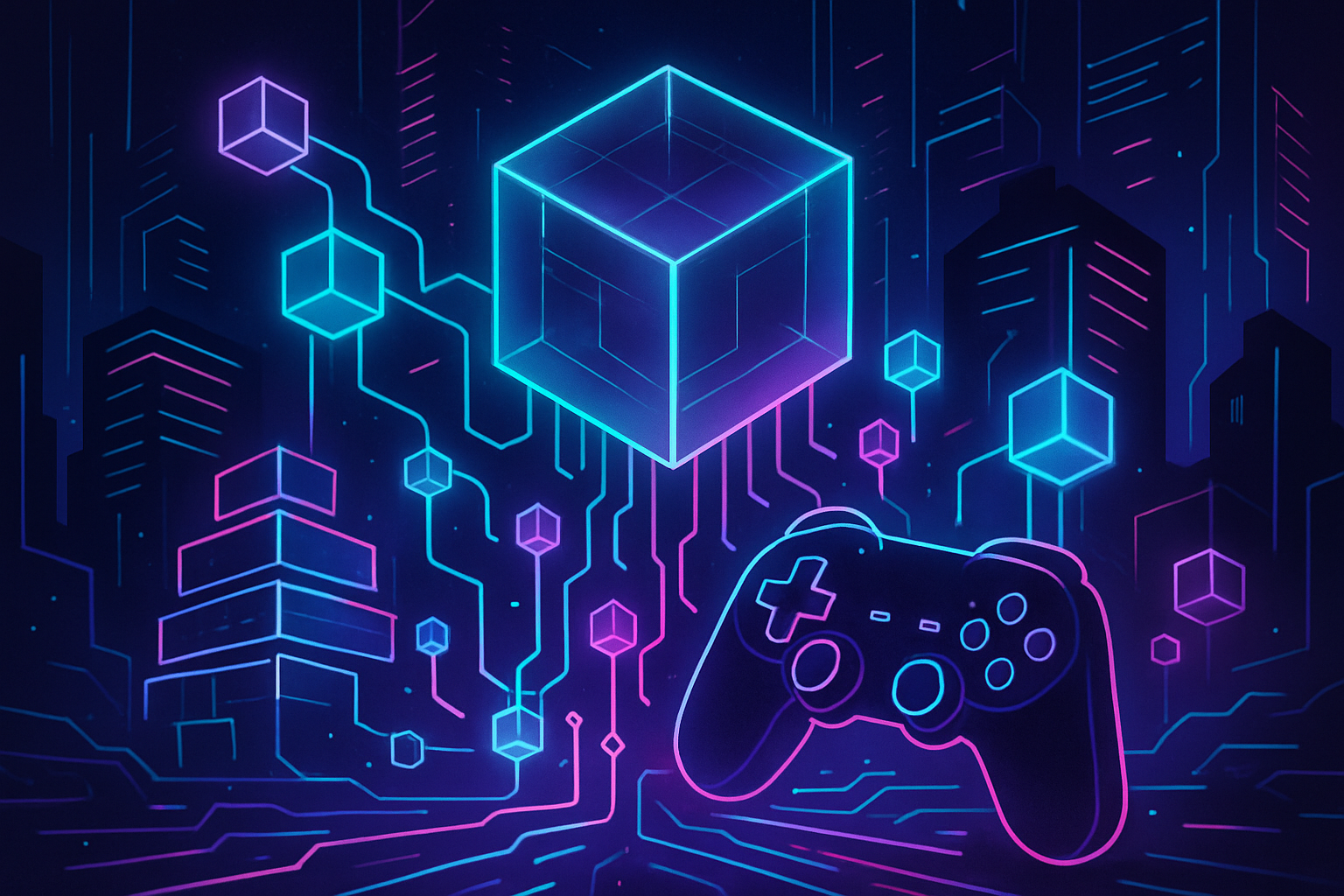
Real-time, fully on-chain gaming has long been a holy grail for blockchain developers. While Solana has earned a reputation for its rapid 400-millisecond block times, even this speed falls short for the sub-100ms latency demanded by competitive games. Enter ephemeral rollups (ERs), a breakthrough championed by MagicBlock and already powering next-generation titles like Block Stranding: the world’s first fully on-chain MMORPG on Solana. With ERs, the Solana blockchain is poised to redefine what’s possible in decentralized gaming.

What Are Ephemeral Rollups and Why Do They Matter?
Ephemeral rollups are temporary, high-performance execution environments spun up on demand to handle specific gaming sessions or interactions. Unlike traditional rollups or sidechains, ERs operate as elastic, app-specific layers that process game logic at lightning speed, then finalize results on Solana’s mainnet. This hybrid architecture allows developers to move critical state updates off the congested main chain without sacrificing the composability, security, or asset ownership that only true on-chain gaming can provide.
MagicBlock’s ERs leverage the Solana Virtual Machine (SVM) to run custom validators optimized for low latency. During a gaming session, select accounts are locked on Solana, readable by the network but writable only by the ER. All game actions, from item swaps to PvP battles, are processed within the ER’s temporary execution layer. Once the session concludes, the final state is settled back on Solana, ensuring trustless integrity and allowing seamless interaction with the broader DeFi and NFT ecosystem.
Solana’s Current Market Context: Why Speed Matters More Than Ever
As of today, Binance-Peg SOL (SOL) trades at $221.67, reflecting both the blockchain’s robust ecosystem and growing demand for scalable applications. With the rise of on-chain gaming, network congestion and transaction fees are back in the spotlight. Traditional blockchains struggle to balance throughput, decentralization, and cost, often forcing developers to choose between speed and security.
Ephemeral rollups sidestep this dilemma by enabling sub-50ms global latency for game state updates, compared to Solana’s already impressive 400ms block times. This leap is not just about faster gameplay: it’s about unlocking entirely new genres of games, real-time MMORPGs, on-chain shooters, and even high-frequency trading simulations, without compromising on decentralization or user experience.
How MagicBlock’s Ephemeral Rollups Work Under the Hood
The technical genius behind ERs lies in their ability to delegate account control to a purpose-built SVM validator. This validator operates outside the constraints of Solana’s consensus and gossip protocols, allowing it to process thousands of transactions per second with near-zero latency. Here’s a simplified breakdown:
Technical Advantages of Ephemeral Rollups for Solana Gaming
-
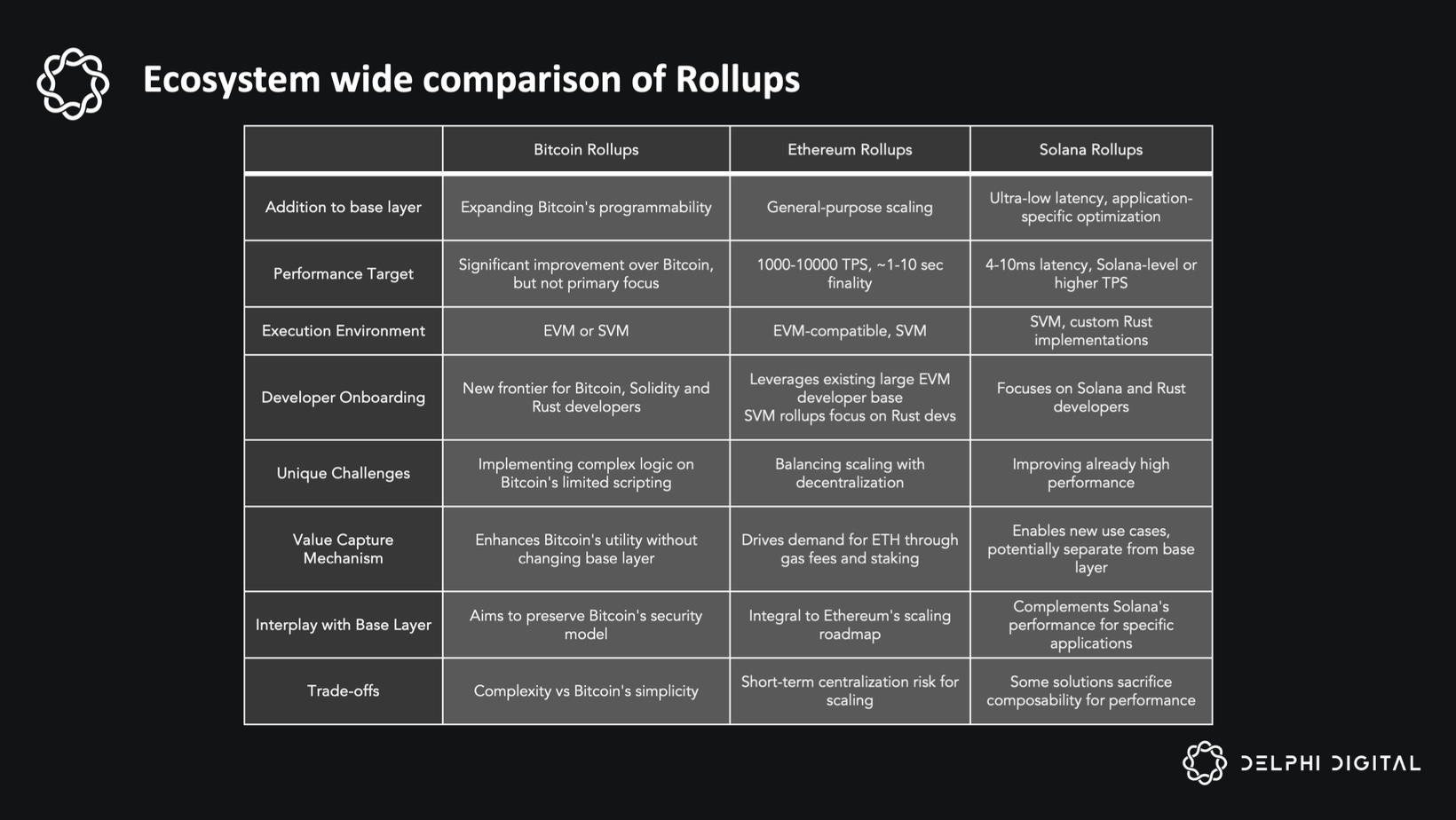
Ultra-Low Latency Gameplay: Ephemeral Rollups (ERs) enable end-to-end latencies below 50 milliseconds, far surpassing Solana’s native 400-millisecond block times. This is essential for real-time, competitive gaming where every millisecond counts.
-
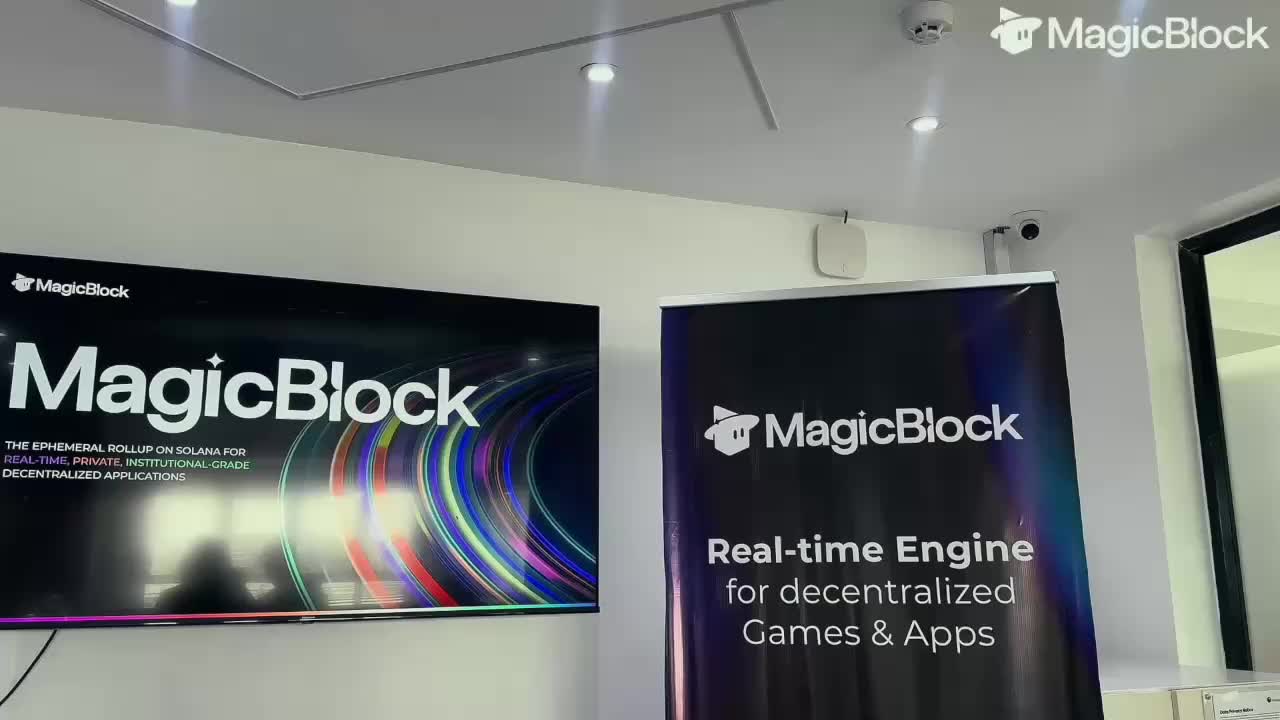
On-Demand, High-Performance Execution: ERs provide temporary, high-throughput execution environments that can be spun up for specific gaming sessions, allowing for rapid state updates without congesting the main Solana network.
-
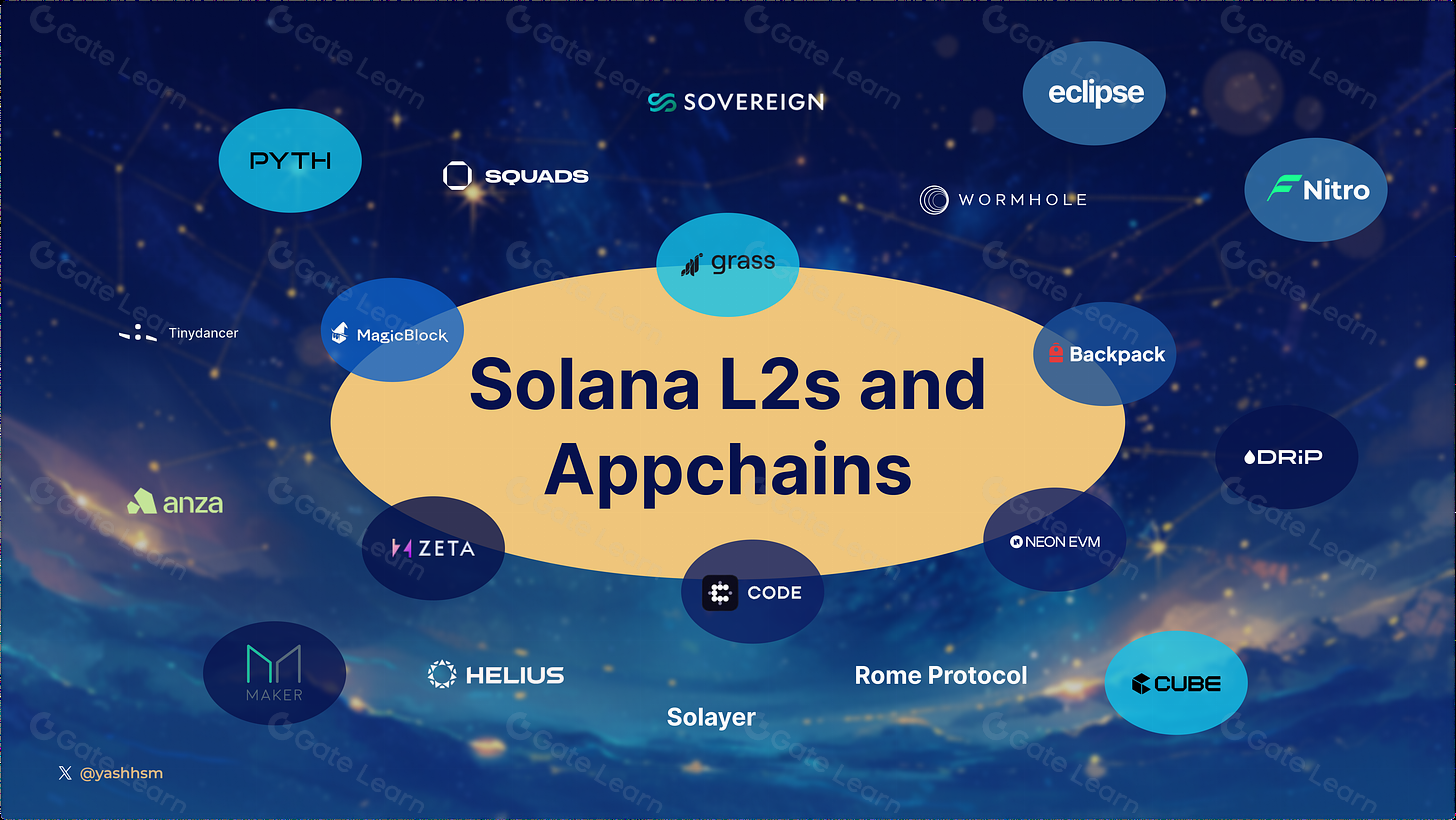
Hybrid On-Chain/Off-Chain State Management: Developers can selectively process critical game logic within ERs while keeping core assets and broader game state on Solana’s main chain, ensuring both speed and security.
-
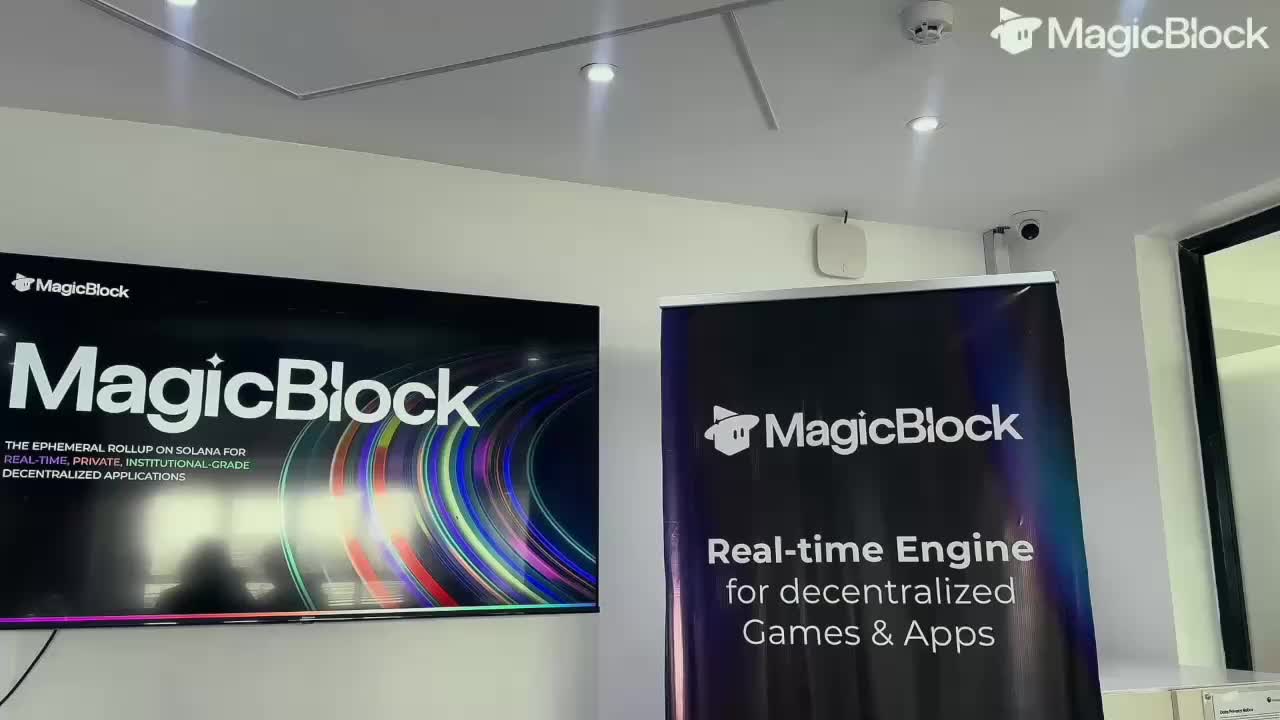
Seamless Integration with Solana Ecosystem: ERs maintain full compatibility with Solana’s composable assets, payments, and DeFi protocols, allowing games to leverage the entire Solana infrastructure without sacrificing performance.
-

Scalable Multiplayer Experiences: By offloading intensive computations to ERs, games like Block Stranding can support real-time, fully on-chain multiplayer experiences that were previously infeasible on traditional blockchains.
-
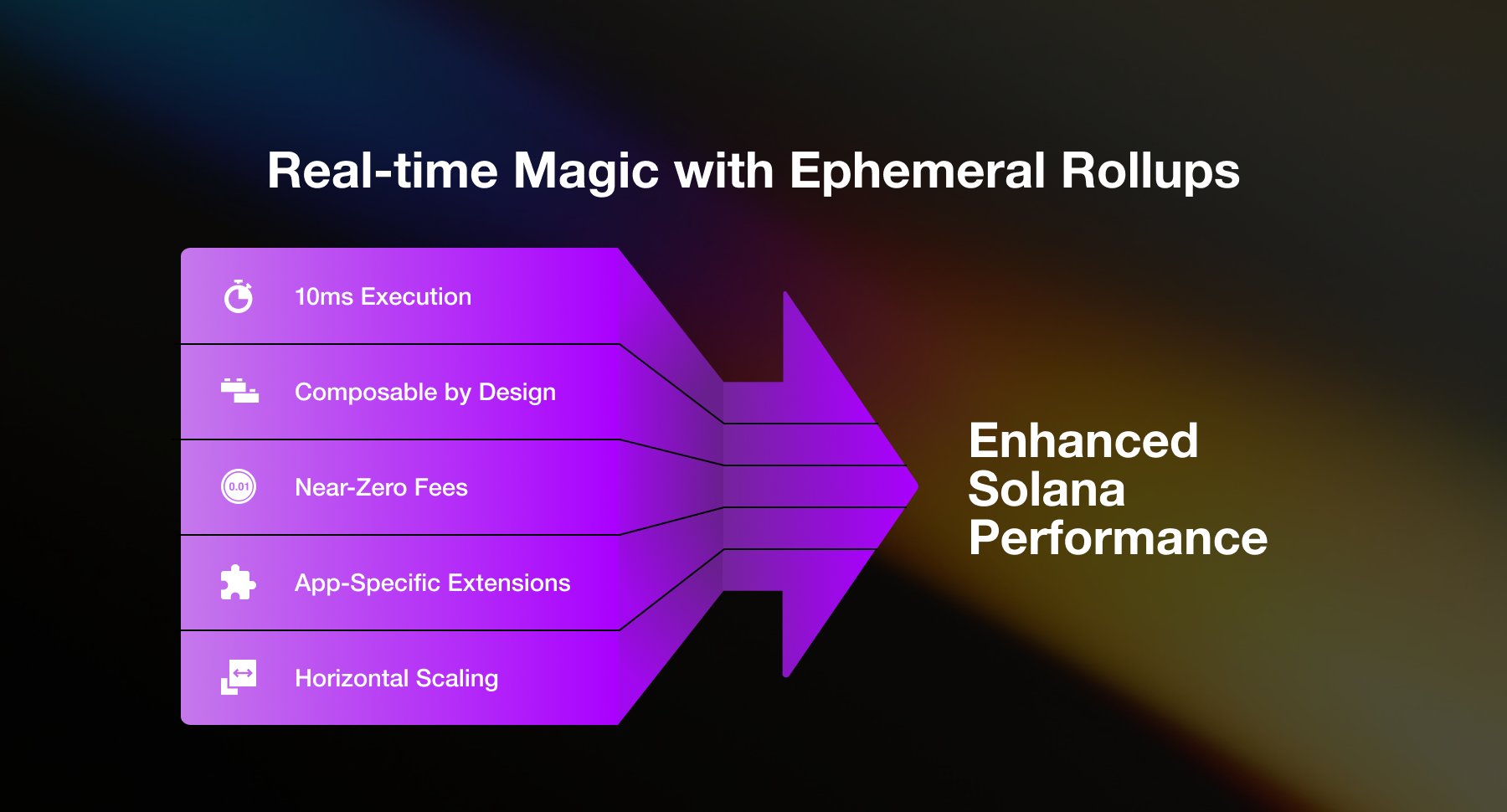
Enhanced Security and Trust: While ERs process transactions off-chain for speed, final state commitments are settled on Solana’s mainnet, preserving the trustless and secure nature of blockchain gaming.
1. Selective State Delegation: Only the accounts relevant to a gaming session are moved into the ER, minimizing overhead. 2. Temporary Execution: The ER persists just for the duration of the session or match. 3. Finalization: Once complete, all changes are cryptographically committed back to Solana’s mainnet. 4. Security and Composability: Assets and logic remain on-chain, so players keep full control and interoperability.
This approach is already powering real-world experiments. Block Stranding demonstrates how MMORPGs can run fully on-chain, with all player actions, assets, and outcomes secured by Solana yet executed at console-grade speeds.
Why Ephemeral Rollups Are a Game Changer for Developers and Players
For developers, ERs offer a suite of benefits that go beyond raw speed:
- Zero gas fees for in-session actions, removing friction for players
- Elastic scaling, spin up as many ERs as needed for tournaments or peak hours
- Direct integration with Solana’s DeFi and NFT markets for seamless asset management
- Customizable fee markets for monetization, loyalty rewards, or dynamic pricing
For players, the impact is immediate: real-time responsiveness, true asset ownership, and the ability to participate in global, trustless economies, all without leaving the game world.
To dive deeper into the mechanics and future of ephemeral rollups on Solana, including their application to DeFi and scalable blockchain games, see our detailed guide here.
Looking ahead, the roadmap for ephemeral rollups (ERs) on Solana is rapidly advancing. MagicBlock’s phased rollout strategy starts with a semi-permissioned network, expected by the end of Q2 2025, where most ER nodes are operated by MagicBlock, but third-party nodes are invited to participate. The end goal is a fully permissionless ER ecosystem, scheduled for late 2025, pending the deployment of robust fraud-proof systems. This progressive decentralization is critical for maintaining trust and censorship resistance as on-chain gaming scales to millions of concurrent users.
Expanding the Use Case: Beyond Gaming
While the spotlight is currently on real-time games like Block Stranding, the implications of ERs reach far beyond entertainment. Any application that demands both high throughput and low latency, think real-time financial trading, decentralized social media, or microsecond DeFi arbitrage, stands to benefit from this architecture. Developers can now build scalable blockchain games and apps that were previously unfeasible on public chains, all while leveraging Solana’s composability and security guarantees.
Key to this flexibility is the ability to define custom fee markets for each ER session. Developers can experiment with zero gas fees for core gameplay, introduce dynamic pricing for premium features, or incentivize specific player behaviors. This opens up new economic models and monetization strategies, all enforced by the underlying blockchain logic.
Innovative Use Cases for Ephemeral Rollups Beyond Gaming
-
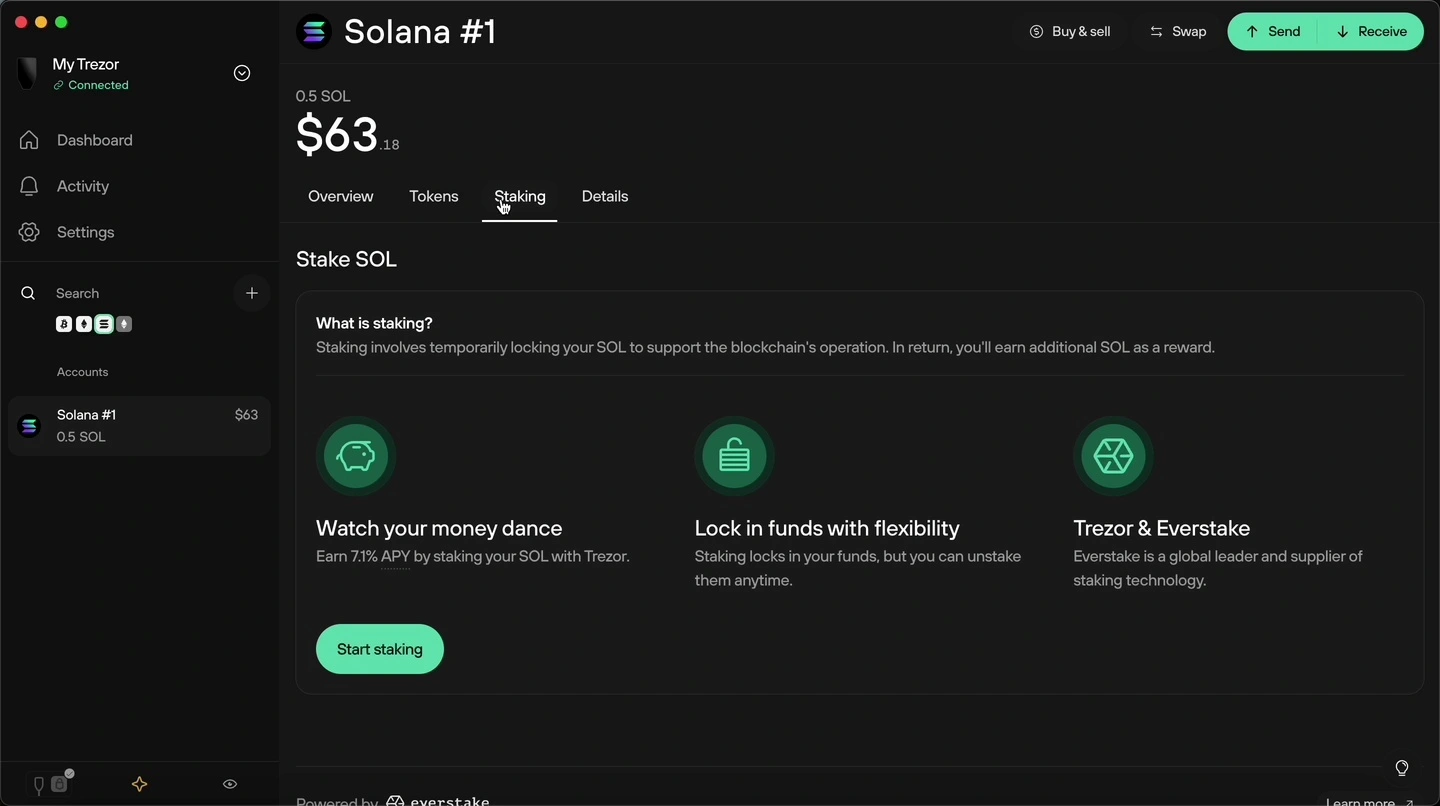
High-Frequency Trading (HFT) Platforms: Ephemeral Rollups can process trades with sub-50 millisecond latency, enabling real-time order matching and risk management for on-chain HFT strategies on Solana. This dramatically improves throughput and minimizes slippage compared to traditional blockchain execution.
-
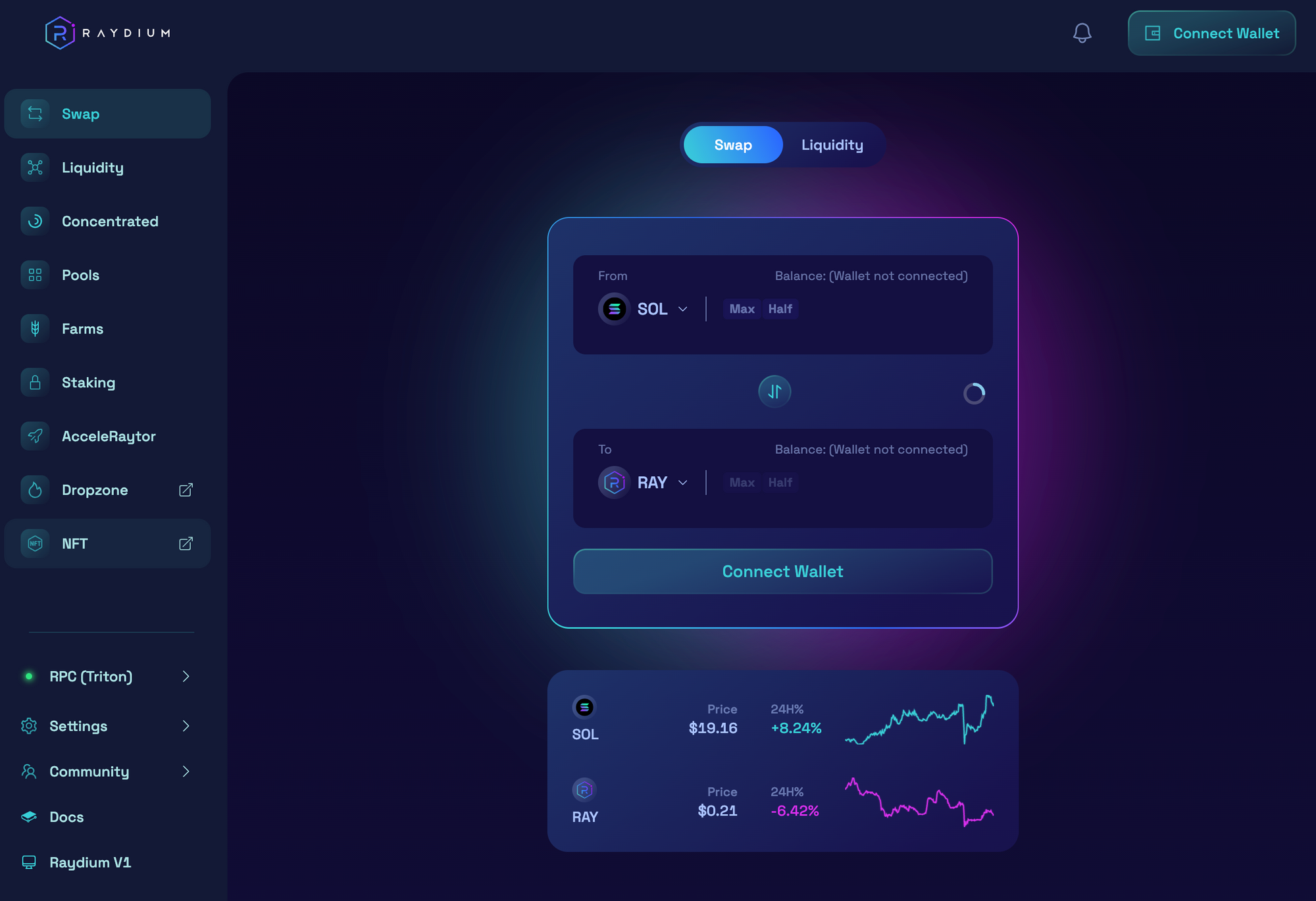
Decentralized Finance (DeFi) Protocols: By leveraging ERs, DeFi platforms can offer instant swaps, flash loans, and real-time liquidation engines, enhancing user experience and capital efficiency without sacrificing on-chain transparency.
-
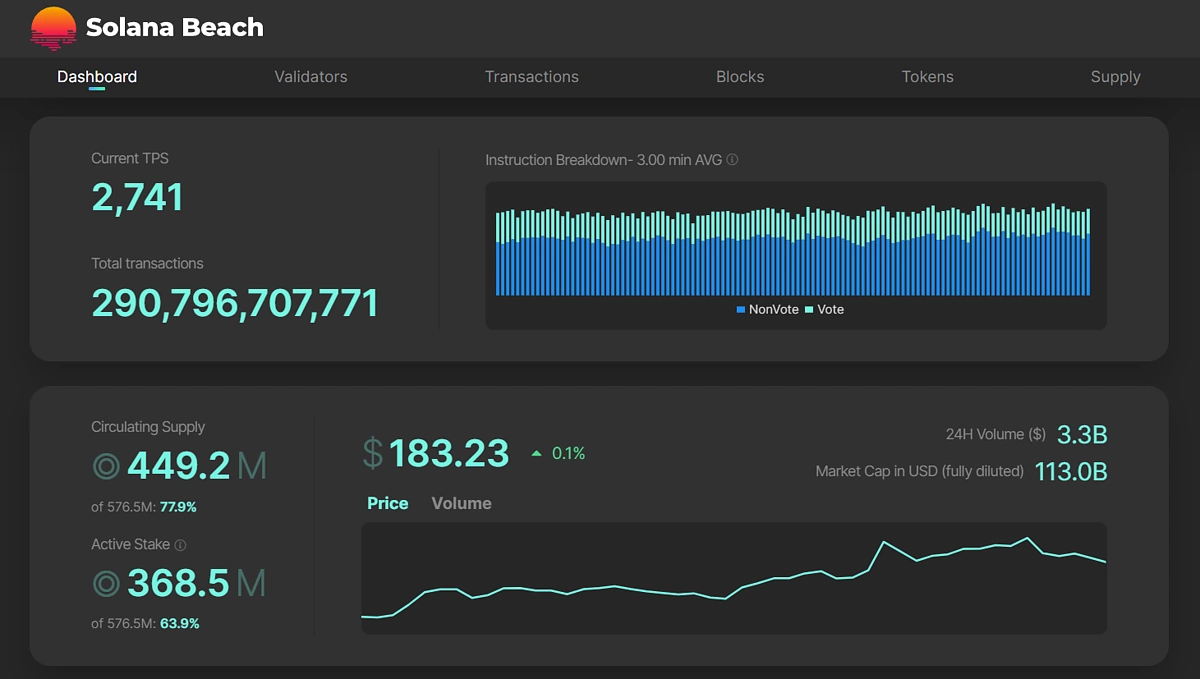
Social Platforms and Real-Time Messaging: Social dApps can utilize ERs for instant messaging, live feeds, and collaborative interactions, supporting massive user concurrency with minimal delays and full on-chain composability.
-
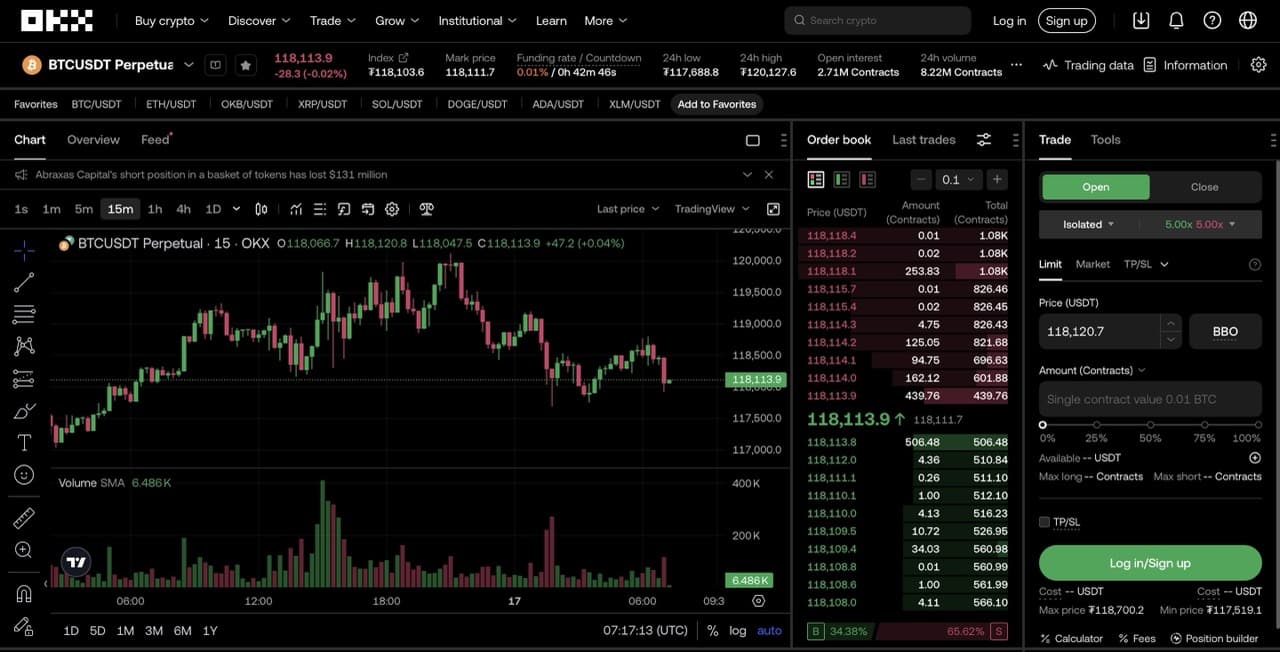
Prediction Markets and On-Chain Auctions: ERs allow for rapid settlement and state updates in prediction markets or live auctions, enabling fair, transparent, and low-latency bidding and outcome resolution.
-
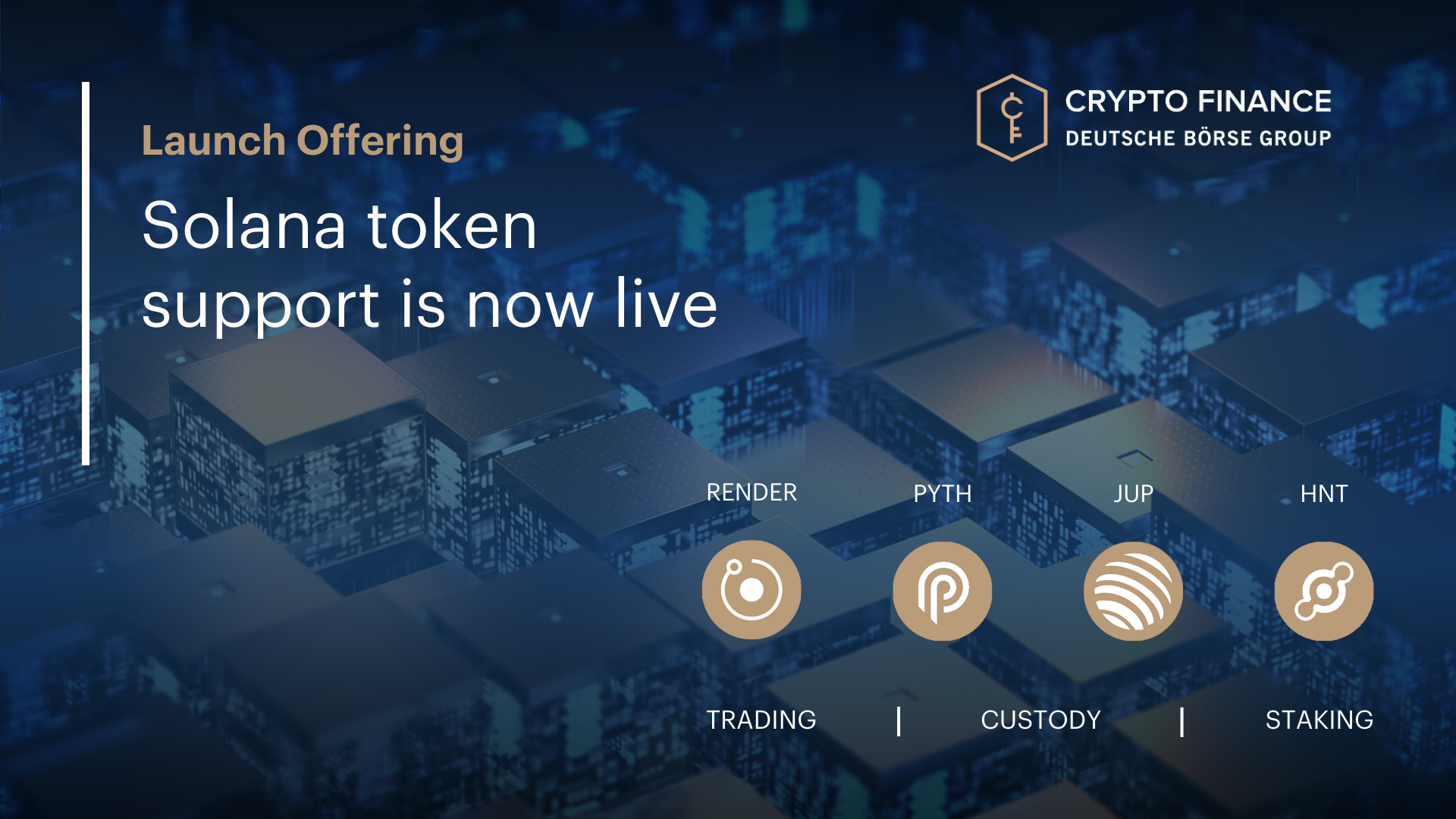
Real-Time Data Oracles and IoT Applications: By processing data feeds and sensor inputs with high throughput, ERs can support real-time oracles for DeFi, gaming, and supply chain use cases, ensuring up-to-the-second accuracy on-chain.
The Future: A New Standard for On-Chain Interactivity
With SOL trading at $221.67, Solana’s ecosystem is at an inflection point. The ability to deliver sub-50ms latency and zero in-session gas fees through ephemeral rollups is setting a new benchmark for what’s possible in decentralized apps. As more developers adopt MagicBlock’s technology, expect a wave of innovation: from massive multiplayer worlds to lightning-fast DeFi protocols, all built on the same composable backbone.
For those interested in the technical deep dive, or in building with ephemeral rollups themselves, resources like this comprehensive guide provide a step-by-step overview. The future of on-chain gaming, and indeed, all high-performance blockchain applications, will be defined by how seamlessly these ephemeral, app-specific layers can be spun up, scaled, and integrated with the broader ecosystem.
As the line between traditional and blockchain gaming blurs, one thing is clear: ephemeral rollups on Solana are not just a technical upgrade, but a paradigm shift in how we think about speed, ownership, and composability in the digital world.






